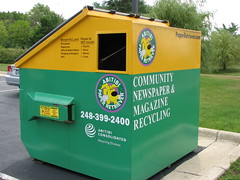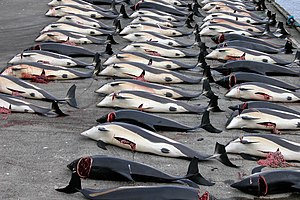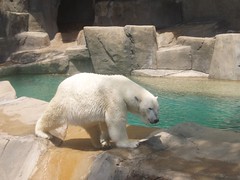Over the last few years, scientists and news outlets continue to warn of the insidious effects of global warming. Average folks may find the chimerical pleas of the scientific community incredulous, but the remonstrance demonstrations of scientific experts prove necessary. Everyday folks can do their part by conducting basic, everyday activities to cut back energy, conserve vital materials and curb the emission of harmful chemicals and gases. Some people even take
online environmental studies classes to learn more about what they can do to help.
Most people remain unaware of the bevy of simple acts they can participate in to help
save the Earth. From redesigning an
energy efficient home to taking
public transportation, these prodigious, environmentally friendly steps can help leave a better plant for the future generations.
Water Use
Everyone needs water. People need it to clean the dishes. Folks need water to wash their cars. Kids need water to take a shower. Even the grass, plants and trees interspersed outside a home need water. Water is an essential commodity to every home, but also one of the most misused and wasted.
Municipal systems require energy to clean and distribute water among homes; the more water consumed, the more energy needed to clean and provide folks with the essential liquid. Watch how you consume water. Turn off the faucet when you brush your teeth or while scrubbing your face with cleaning solutions. When you irrigate your lawn, try to water during the early morning hours, as these times are the coolest and help save the most energy.
Other water saving methods includes fixing leaky faucets and toilets. According to the
Environmental Protection Agency, a leaky toilet can use an upwards of 200 gallons of extra water per day; water and energy that other individuals may use for more essential tasks. Exercise some constraint, and be wise about your daily water consumptions, especially with water-dependent activities, such as washing the car, watering the lawn and taking a shower.
Recycle, Recycle, Recycle!
The inordinate consumption of raw goods produces tons of hazardous gases that spew into the environment, making areas inhospitable due to the air quality and heat. By reducing the overconsumption of raw goods, the scientific community asks individuals to recycle. Newspapers, magazines plastic bottles and even aluminum cans make for the common, everyday items people recycle, but fire extinguishers, e-waste and chemicals are fatuously thrown away.
Continue to recycle old newspapers and bottles so that these materials get reused, but also throw away e-waste and chemicals away at the proper recycling centers. Discarding chemicals, batteries and even e-waste into the trash leaves hazardous products in landfills that can spill into the
Earth, contaminating water and soil.
Visit a proper plant to discard of materials. Recycling products requires little effort and is a simple, everyday gesture you can do to avoid toxic materials from seeping into the earth. You do not have to be an environmental expert or take online classes to understand the importance of recycling.
Turn off Electronics
Computers consume an average of 40 watts of power per day according to
Wire & Twine. If you happen to leave that same computer on the entire night, the device consumes a bit more. Turning off old electronics when not in use can save a few dollars a year, but more importantly help the environment.
Unplug the laptop when not in use. Disconnect the television set from the outlet, if you’re going out of town. Aim to keep the lights off when not in use. Get creative and discover what electronics you can shut off to preserve energy.
Turning off electronics and removing them from their power sources helps save hundreds on the electric bill. Something as simple as turning off the computer at night can save an average of $14 a year; may not sound like much, but your simple effort has prodigious effects on the environment.
Wash Your Clothes with Warm to Cold Water
Older electronic appliances failed to understand the science behind energy efficient standards. The more energy consumed, the more
power plants must produce creating more hazardous chemicals. Newer, more efficient appliances, such as the washer machine, help curb the need for energy.
By switching to newer machines using warm to cold washing methods, individuals can save a few dollars on their electric bill and reduce the need for producing more energy. Granted, energy efficient products do cost more, but you can find creative ways to save on products.
Skip the Personal Transportation
Okay, this tip might be harder for some to do, especially with long commute times to desolate areas. Still, for the average individual venturing to a metropolitan area, try to carpool or avoid from using your car five days a week. Instead, take your bike two days a week to work or a form of public transportation.
By reducing the number of times you take your own car to work, you not only save gas, but reduce the number of dangerous emissions that creep into the environment every day. Be smart, take public transportation when you can.
Ecospree


















































